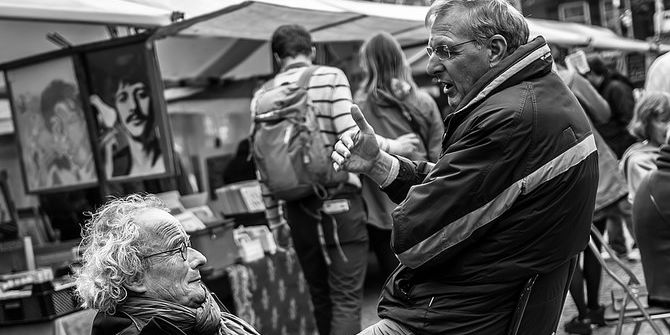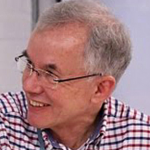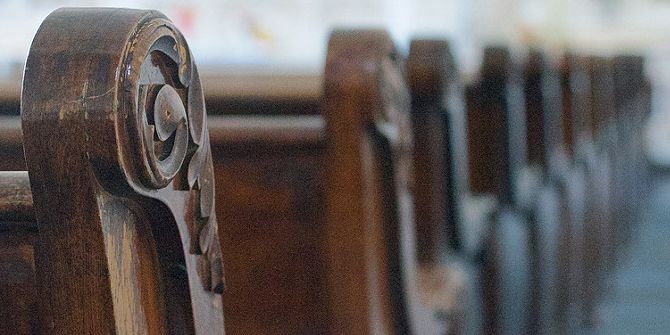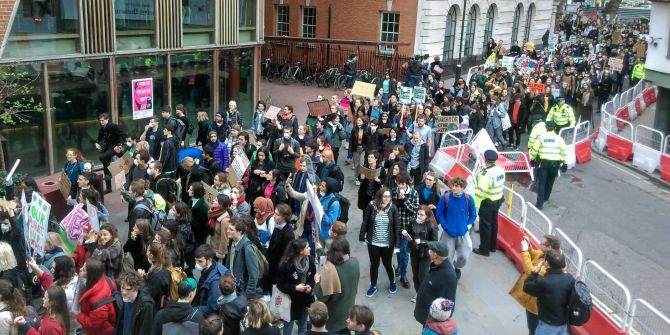In a helpful exploration of the term, Jeremy Rodell identifies three core principles of secularism: institutional separation, freedom of belief and no discrimination on grounds of religion. These conditions allow for ‘competing concepts of the good life’ to be pursued in society.

When secularists talk about secularism, they are talking about a political idea, a way of organising a state and its society in relation to religion and belief, as opposed to the materialist philosophical idea of the word’s nineteenth century originator, George Holyoake.
Within this political idea, there are many secularisms, both conceptual and practical. Their common ground is the separation of state authorities and institutions from religious authorities and institutions.
Religious commentators often talk about two flavours of secularism, Rowan Williams refers to them as ‘programmatic’ and ‘procedural’, and Charles Taylor ‘closed’ and ‘open’. They dislike ‘programmatic’/’closed’ secularisms, by which they mean those where religion is entirely excluded from the ‘public square’ and manifest solely as a private matter.
Few modern secularists are seeking that, not least because it would be incompatible with the reasons they want secularism in the first place. In ‘The case for Secularism – a neutral state in an open society’ (2007), the Humanist Philosophers Group articulated three arguments in the context of modern, plural societies: autonomy (the need to avoid anyone being coerced into or out of faith or belief); fairness (in a plural society, the ‘Veil of Ignorance’ test implies equality); and pragmatism (the need to maximise harmony and minimise conflict). The secularism this implies is not ‘closed’, but ‘open’.
Andrew Copson’s 2017 book ‘Secularism – Politics, Religion, and Freedom’ defines it using principles from the work of French historian and sociologist of secularism, Jean Baubérot: 1) separation of religious institutions from the institutions of state, and no domination of the political sphere by religious institutions; 2) freedom of thought, conscience and religion for all, with everyone free to change their beliefs, and manifest their beliefs, within the limits of public order and the rights of others; 3) no discrimination against anyone on the grounds of their religion or non-religious worldview, with everyone receiving equal treatment on these grounds.
Both Humanists UK, of which Andrew Copson is Chief Executive, and the National Secular Society use similarly inclusive definitions.
One criticism of this view is that, far from the neutrality it claims, it actually involves imposing both a European Enlightenment notion of separating private faith from community and public life, and a solely rationalist, non-religious worldview on the public realm itself.
These concerns ignore two important facts. Firstly: diversity. Roughly half the British population does not identify with a religion, and the other half has a wide diversity of religious identities, beliefs and practices. Secularism does nothing to inhibit people pursuing what the Humanist Philosophers Group called ‘competing concepts of the good life’. All it does is inhibit one religion or belief imposing itself on the rest in the shared public space.
Secondly: democracy. In such a diverse society, arguments and ways of thinking couched in specifically religious terms can be freely used, but they are unlikely to win enough people over to be successful. The ongoing debate about assisted dying is a case in point. Presumably those opposed to assisted dying include some who sincerely share the Catholic Church’s view that suicide is ‘equally as wrong as murder […and…] is to be considered as a rejection of God’s sovereignty and loving plan.’ But they rarely say that. Instead, the argument focusses on pragmatic concerns about undue pressure on vulnerable people that everyone, not just devout Catholics, can relate to. So far, those arguments have won, despite massive public support for a change in the law.
While secularism implies a reduction in institutional Church power, the separation of religion and state seems not to be a theological problem for Christianity: ‘Render unto Caesar the things that are Caesar’s, and to God the things that are God’s’ (Mark 12:17). But Christianity is no longer the only consideration. Islam, in all its variations, is the UK’s second largest faith, currently at around 5% of the population (Pew Research forecast 10% in 2050). There is no ‘Church’ in Islam and, conceptually, no religion/state or public/private separation. British Muslim scholars such as Abdullah Sahin therefore share the concerns of Christian thinkers about forms of secularism which might prevent devout Muslims from manifesting their faith holistically in their lives. But he appears to support the sort of inclusive secularism (what he confusingly calls ‘secularity’) which most secularists are actually seeking. Meanwhile British Muslims for Secular Democracy actively campaigns for its implementation.
When we look at secularism in practice, no country applies the three principles perfectly. The US famously has a ‘wall of separation’ between church and state, but ‘In God We Trust’ on its banknotes, and Donald Trump claiming: ‘We’re going to protect Christianity. We don’t have to be politically correct about it’. On the other hand, French laïcité, with its anti-clerical roots, has been applied to ban students from wearing conspicuous religious clothing or symbols in public schools, women from wearing face veils in public and, until overturned by the courts, the wearing of burkinis on the beach – a ban to which the International Humanist & Ethical Union responded with a statement headed ‘This is not our secularism‘. In the Middle East, especially in Syria and Egypt, as Samuli Schielke has highlighted, secularism has a bad name. It is seen by many as a malign western concept. Far from a liberal ideal, it has been applied by nationalist dictators to exert their brutal authority.
The UK is in practice seen as an example of ‘open secularism’. There is freedom of thought and expression, and no bans on religious symbols in schools, or public veiling. All schools are required to teach ‘individual liberty, and mutual respect and tolerance for those of different faiths and beliefs’. But the UK fails on two of Baubérot’s principles. Not only is the Head of State also the head of the Church of England – an institution with which less than 5% of people under 35 identify – but, uniquely among democratic countries, 26 seats in the legislature (the House of Lords) are reserved for its bishops. Christianity remains embedded in public life, from Remembrance ceremonies to prayers in Parliament. A large – and still growing – number of state-funded schools are run by religious organisations, principally the Church of England and the Catholic Church, but also now Muslim, Jewish, Sikh and Hindu groups. If there is competition for places, these state schools are legally allowed to discriminate against children on the basis of their parents’ faith, or lack of it.
Secularists want these things to change. But at the same time, they will strongly defend freedom of religion or belief, provided the rights of others are not eroded. Religious people are as free as anyone to seek public office and argue from their convictions. The Archbishop of Canterbury can go on TV and argue for political change on the basis of his faith, and as leader of his organisation. But their arguments should be given the same weight in the public square as anyone else’s.
The application of the three principles of secularism would not avoid future disputes about the role of religion and belief in national life. But it would minimise them, and provide the fairest foundation on which to build a peaceful, plural society.
About the author
 Jeremy Rodell is Dialogue Officer for Humanists UK. He has a particular interest in the major changes taking place in the British religion and belief landscape, and the role of open and constructive interactions between people with humanist and religious worldviews.
Jeremy Rodell is Dialogue Officer for Humanists UK. He has a particular interest in the major changes taking place in the British religion and belief landscape, and the role of open and constructive interactions between people with humanist and religious worldviews.
Note: This piece gives the views of the author, and not the position of the LSE Religion and Global Society blog, nor of the London School of Economics.






Very interesting, thank you very much!
Good information. Which is helpful thanks a lot